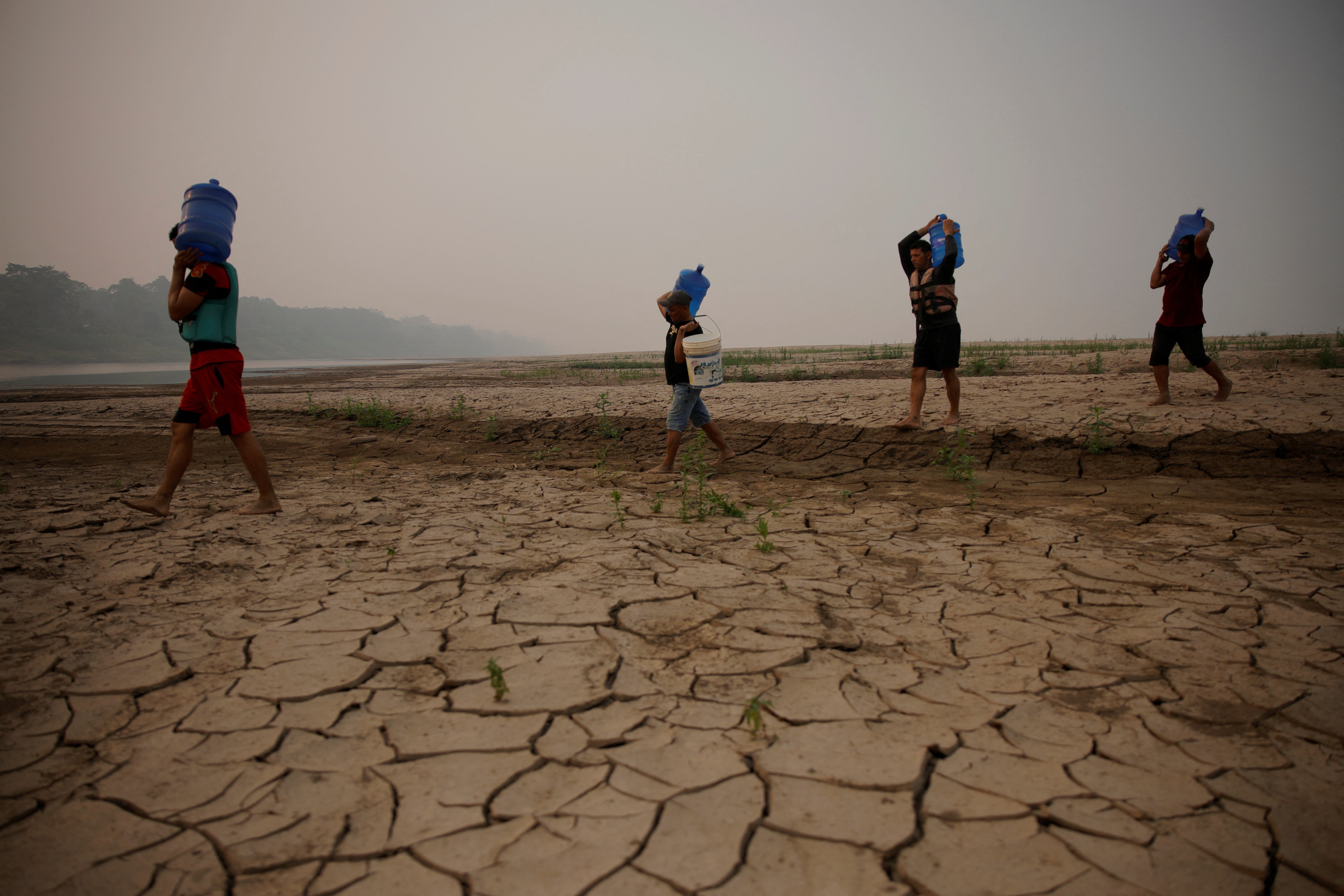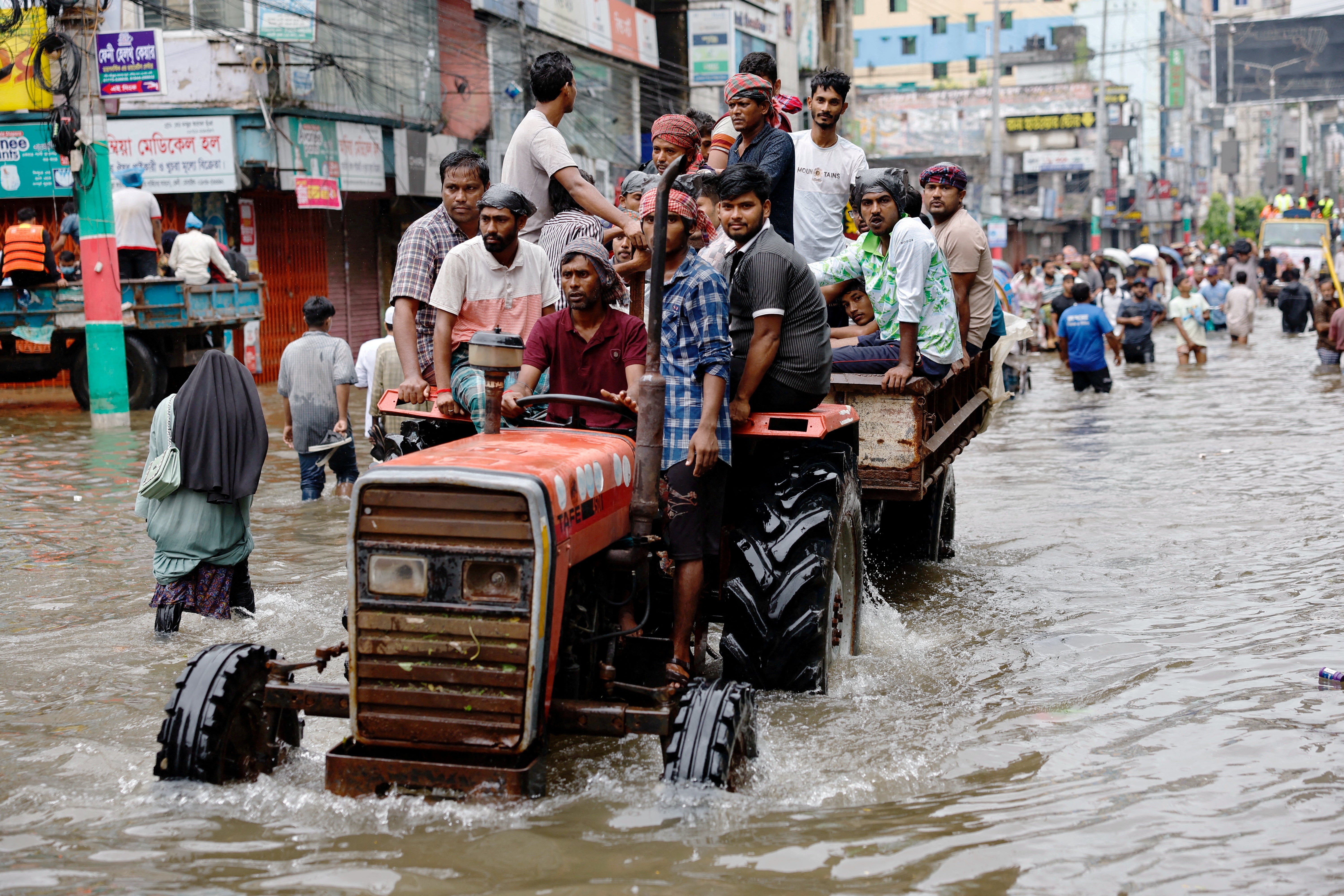World is on track for a ‘catastrophic’ rise in temperature, UN report says
The United Nation’s warning comes as scientists say 2024 will most certainly be Earth’s hottest year on record once again
The world is on track for a “catastrophic” 3.1 degrees Celsius (5.6 degrees Fahrenheit) of global warming over preindustrial levels, according to the United Nations.
The international organization said that a previous goal to limit warming to 1.5 degrees Celsius (2.7 degrees Fahrenheit) – a threshold set at the 2015 Paris Agreement – will “soon be dead” without an unprecedented global mobilization to limit climate change.
Earth is currently likely to see a global temperature rise of 2.6 degrees Celsius to 3.1 degrees Celsius, according to the UN Environment Programme (UNEP).
Although, the exact amount of future warming will depend on steps taken to curb emissions of greenhouse gases produced by the fossil fuel industry.
The UN said its core message is that “ambition means nothing without action.”
“The magnitude of the challenge is indisputable. At the same time, there are abundant opportunities for accelerating mitigation action alongside achieving pressing development needs and Sustainable Development Goals,” it said.

The impacts of climate change are already ravaging the globe, bringing more severe wildfires and extreme heat, as well as widespread and devastating flooding.
Scientists have warned that there is no safe amount of climate change, but passing the 1.5-degree threshold would bring impacts to ecosystems that are larger than the world is willing to accept.
“There is a direct link between increasing emissions and increasingly frequent and intense climate disasters,” António Guterres, UN Secretary-General, said in a video. “Around the world, people are paying a terrible price. Record emissions mean record sea temperatures supercharging monster hurricanes; record heat is turning forests into tinder boxes and cities into saunas; record rains are resulting in biblical floods.”

Urgent action taken this decade is essential for trying to minimize the impacts, according to experts. Many areas, including islands, are disproportionately affected by climate change. In an increasingly warming world, those troubles would only grow.
While nations have implemented country-level action plans for meeting these targets up to 2030, the UN report said greenhouse gas emissions are still rising. Last year, they rose by 1.3 percent over 2022 marks.
Across the 19 members of the G20 forum, greenhouse gas emissions increased last year, accounting for 77 percent of global emissions.
A six-fold increase in mitigation investment is needed to achieve net zero, cutting carbon emissions to a small amount that will leave zero of the greenhouse gas in the atmosphere.
Even if countries deliver on their climate plans, the report said there would be temperature rises between 2.6 degrees and 2.8 degrees Celsius over the preindustrial marks.

”Nations must collectively commit to cut 42 percent off annual greenhouse gas emissions by 2030 and 57 percent by 2035 in the next round of NDCs to achieve the 1.5C goal,” the UNEP cautioned.
The deadline for countries to submit their next plans, known as nationally determined contributions or NDCs, is just a few months away and ahead of the COP30 climate talks in Brazil.. The report said they must “deliver a quantum leap in ambition.”
The publication of these findings also comes just days before the United Nations Climate Change Conference “COP29,” which will be hosted in Azerbaijan’s capital city of Baku.
While 2023 was the planet’s warmest year on record, climatologists say it is nearly certain that this year will set a new record.
“We’re being tested. The planet is testing us to see if we can explain things that we didn’t anticipate,” NASA’s chief climate scientist Gavin Schmidt told The Independent on Tuesday. “And, we have not yet passed that test.”
With reporting from PA News
Join our commenting forum
Join thought-provoking conversations, follow other Independent readers and see their replies
Comments
Bookmark popover
Removed from bookmarks